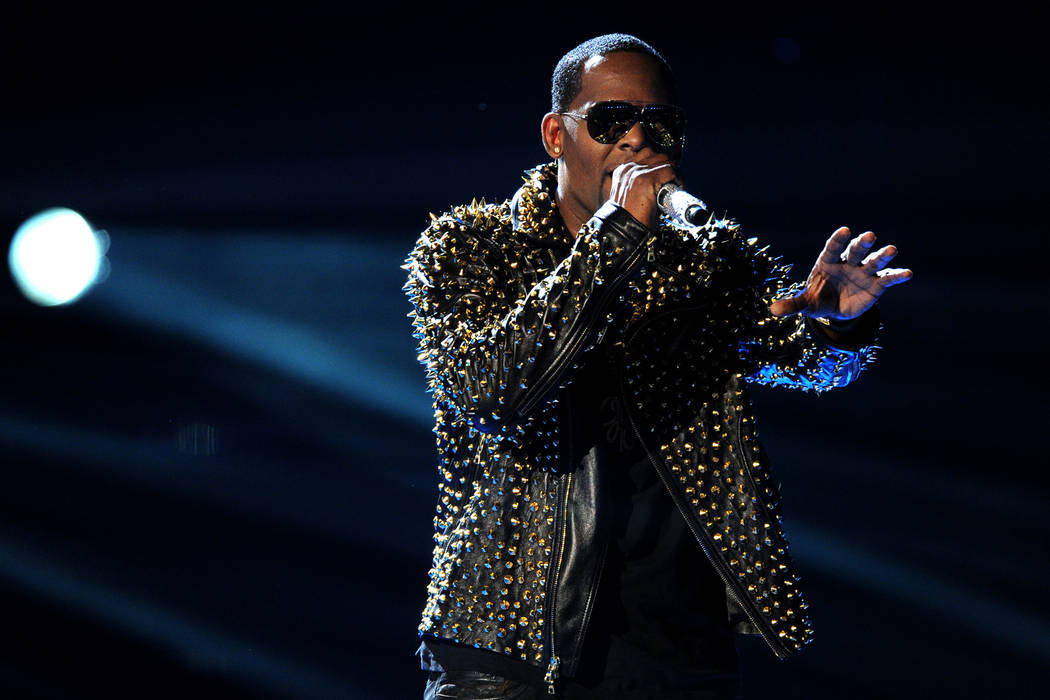Can you support music if the artist isn’t a good person? — POLL
The latest controversy to engulf R. Kelly involves allegations that the singer was operating some sort of “sex cult” in his Atlanta home.
R. Kelly has released a video calling the allegations “a bunch of crap.”
Whether or not any of this is true, it’s hardly the first time that accusations of sexual misdeeds have been leveled against R. Kelly.
But he remains a highly popular R&B star and a solid draw on the road (These latest claims are negatively impacting sales for his upcoming tour dates, however, and his Oct. 5 show at The Joint at the Hard Rock Hotel was recently canceled.)
Kelly’s continued popularity reignites a frequent debate: If it becomes common knowledge that an artist is a less-than-stellar human being, does it negatively affect your opinion of his or her art? Do you stop listening to that artist’s music, even if you love it? Can you no longer, in good conscience, be a fan?
There are plenty of examples of artists behaving badly, from the serious (Chris Brown’s domestic abuse of Rihanna) to the merely obnoxious (Justin Bieber’s random acts of jerk-ery).
For me, things hit closer to home last year, when ex-Pantera and current Down/Superjoint frontman Phil Anselmo yelled “white power” and made a Nazi salute at the end of a memorial show for his former Pantera bandmate Dimebag Darrell. Anselmo appeared to be highly intoxicated and insisted afterward that the incident was an in-joke gone wrong related to the fact that he was drinking white wine throughout the evening.
Anselmo has made racial comments from the stage in the past, so this wasn’t a totally shocking development. As such, Anselmo got the benefit of the doubt from practically no one.
Did this make me any less a fan of his numerous bands?
Not at all.
Let me explain.
Me continuing to dig a Down record certainly isn’t the same as condoning racism, just as someone who still enjoys R. Kelly’s repertoire isn’t giving a thumbs-up to his alleged actions. (If Anselmo penned racist songs or R. Kelly advocated the abuse of women in his tunes, this wouldn’t be the case. They don’t.)
To me, it’s not hard to separate the art from the artist, unless, of course, the art is reflective of the negative qualities of its creator. Do I own records made by racists? Probably. Do I own any racist records? Definitely not.
Here’s the thing, no one has ever bought a crappy record and consoled themselves afterward by the fact that it was made by a bunch of really, really good people.
When something is lame, we don’t care who made it. It’s lame. You move on.
So, if we don’t elevate inferior art because it was made by wonderful people, then why would we denigrate superior art because it was produced by less-than-wonderful people?
It seems counterintuitive to take an artist’s personal bona fides into account only when the art is worthwhile.
There are distinctions in this argument — as there are in pretty much every argument — but the larger point is that great art can come from not-so-great people.
Don’t feel bad about enjoying the former.
About those Dave Matthews Band records in your collection, though: For that you should hang your head in shame.
Contact Jason Bracelin at jbracelin@reviewjournal.com or 702-383-0476. Follow @JasonBracelin on Twitter.






















